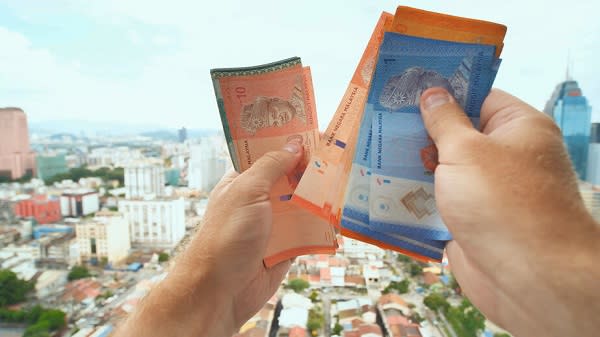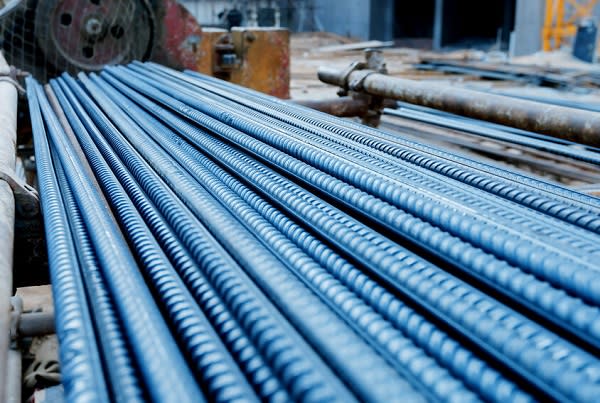Certified Permit No Longer Needed For Minor Renovations, BNM Hikes OPR By 25bps And, More

6th September – 12th September
Kuala Lumpur Mayor Mahadi Che Ngah said building owners, tenants and business owners who wanted to carry out minor renovation work on their office buildings, shophouses, retail lots within shopping complexes and residences will no longer have to apply for a certificate from a certified professional consultant.
Meanwhile, Bank Negara Malaysia (BNM) had raised the Overnight Policy Rate (OPR) by 25 basis points to 2.50%, bringing the ceiling and floor rates of the OPR’s corridor at 2.75% and 2.25%, respectively.
1) Certified permit no longer needed for minor renovations
Building owners, tenants and business owners who wanted to carry out minor renovation work on their office buildings, shophouses, retail lots within shopping complexes and residences will no longer have to apply for a certificate from a certified professional consultant, according to Kuala Lumpur Mayor Mahadi Che Ngah.
He noted that applicants who plan to carry out minor renovations, like the installation of small partitions which do not affect the building’s original structure, will no longer be required to appoint a Principal Submitting Person (PSP) like a certified engineer or architect, reported Bernama.
“As for work permit guidelines for residences, shophouses and offices, applicants can submit application forms on the minor work they want to carry out directly to Kuala Lumpur City Hall (DBKL) without the need for a confirmation from a PSP,” he said.
“It is very beneficial to the applicants because the process can be approved immediately. This will also reduce their costs as they don’t have to pay a PSP anymore,” he added.
2) BNM hikes OPR by 25bps
Bank Negara Malaysia (BNM) had raised the Overnight Policy Rate (OPR) by 25 basis points to 2.50%, bringing the ceiling and floor rates of the OPR’s corridor at 2.75% and 2.25%, respectively.
The central bank noted that the global economy continued to expand, albeit slower, as it is weighed down by tighter global financial conditions, rising cost pressures and China’s strict containment measures, reported Borneo Post.
“However, global growth continues to be supported by improvements in labour market conditions, and the full reopening of most economies and international borders,” it said.
“Inflationary pressures have remained high, due to elevated commodity prices and tight labour markets, despite continued easing in global supply chain conditions. Consequently, central banks are expected to continue adjusting their monetary policy settings, some at a faster pace, to reduce inflationary pressures.”
Notably, aggressive adjustment in US interest rates contributed to a robust US dollar environment, said BNM.
This led to higher volatility within financial markets and affected other major and emerging currencies, such as the ringgit.
Moving forward, BNM expects global growth to face challenges from China’s pandemic management measures and the impact of monetary policy tightening.
3) Hike in Building Materials Cost Index recorded in August
Malaysia saw the Building Materials Cost Index (BCI), with steel bars and without steel bars, for all building categories increase between 0.2% and 22% in August over the same period last year, according to the Department of Statistics Malaysia (DoSM).
In Peninsular Malaysia, the BCI increased between 5.5% and 18%, while Sabah registered an increase of between 0.2% and 15.3%. Sarawak, on the other hand, posted a 5.4% and 22% hike, reported Borneo Post.
The BCI, with steel bars, for all areas within Peninsula Malaysia, Sarawak and Sabah also increased in August over the same period last year.
“The category of buildings that recorded the highest increase in Peninsular Malaysia was for five-storey and above (reinforced concrete) building (for office) in Selangor, Kuala Lumpur, Melaka and Negeri Sembilan,” said DoSM in its Building Cost Index, Malaysia August 2022 report.
“The building category that recorded the highest increase in Sabah was reinforced concrete piling in Sandakan and single-storey steel frame in Miri Sarawak,” it added.
DoSM also noted that the BCI without steel bars rose between 5.5% and 12.4% for all building categories in Peninsular Malaysia.
4) DBKL urged to act on illegal renovation complaints
Bukit Bandaraya residents have called on Kuala Lumpur City Hall (DBKL) to take action against property owners who violate renovation guidelines.
They noted that DBKL had taken little action against errant property owners even as multiple complaints have been lodged over the years, reported The Star.
Datuk M. Ali, Adviser of Bukit Bandaraya Residents Association (BBRA), revealed that they had even taken several senior DBKL officers, including Kuala Lumpur Mayor Datuk Seri Mahadi Che Ngah, to repeated site visits within Bukit Bandaraya, Bangsar and other locations to show them the conditions on the ground.
“There are multiple houses that have breached DBKL’s guidelines, including the lack of the mandatory setback, built-ups beyond the maximum permitted height and excessive number of storeys for the buildings as noted in the local plan,” he said.
“Permitting such illegal construction poses a danger to the people in the neighbourhood,” he added.
5) Lagenda Properties to develop landed affordable township in Selangor
Lagenda Properties Bhd, via its fully owned subsidiary Blossom Eastland Sdn Bhd, has partnered with Kumpulan Hartanah Selangor Bhd (KHSB) to develop a 77.3ha site in Bernam Jaya, Selangor into the first large scale landed affordable township.
About 75km away from Kuala Lumpur city centre, the township will feature over 2,000 affordable landed housing units priced below RM250,000, reported The Malaysian Reserve.
The development – which is expected to boost Selangor northern corridor’s socio-economic growth – marks Lagenda’s first foray in Selangor.
Lagenda MD Datuk Jimmy Doh shared that Selangor was chosen for the township due to its large population as well as the lack of affordable landed homes.
“We believe that once people have the security of owning their home, it enables them to alleviate home ownership concerns and plan their future with more confidence and optimism,” he said.
He added that the landed homes will be complemented with recreational facilities as well as green spaces, “creating an environmentally friendly and family-focused township”.
6) NAHB members impressed with Malaysian property projects
Members of the National Association of Home Builders (NAHB), USA were impressed with several property development projects within Klang Valley.
Deborah Malone, Chief Operating Officer of NAHB and the International Housing Association (IHA) Secretariat, described Malaysia as a pioneer in using best practices to creating high-quality homes, reported New Straits Times.
Speaking at the 2022 IHA Interim Meeting, which was hosted by the Real Estate and Housing Developers’ Association (REHDA), Malone spoke about the considerable efforts made to provide consumer-focused and eco-friendly housing communities.
She shared that IHA members were thrilled to learn of the Ministry of Housing and Local Government’s (KPKT) forward-thinking housing policy, especially its efforts to embrace as well as plan for a changing housing market which represents the preferences and needs of the community.
“We were in awe with the construction taking place at Gamuda Cove, Tun Razak Exchange, Setia Alam, and Eco Ardence. The Malaysian housing industry undoubtedly has a bright future and we are all fortunate to have the opportunity to learn from our colleagues here,” said Malone.
7) Pahang to help second generation Felda settlers own a home
The state government of Pahang will develop pockets of land within Federal Land Development Authority (Felda) areas to build houses for the second generation of settlers.
Mentri Besar Datuk Seri Wan Rosdy Wan Ismail this will be done via the RM1 billion allocation that was approved by the federal government, RM200 million of which will be used to complete abandoned Felda housing projects, reported Bernama.
“This initiative is to help the second generation own a home,” he said.
Separately, Wan Rosdy revealed that there are more than 43,000 Felda settlers, of which 2,160 have not yet received their land title deeds.
Among those who received their land title deed was Abdul Razaki Mustafa.
“Although we know this is our land, there is still a feeling of uneasiness. Only when the title deed changed to our name did we feel relieved, as there’s proof for us to show our grandchildren,” said the 63-year old Felda settler.
“I hope they will also appreciate the land, as it is not easy to obtain one. The hard labour to cultivate the land is still fresh in my mind,” he added.




